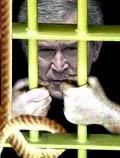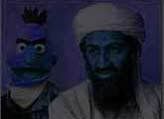| Find |
Thursday, 13 December 2007
Britain’s theatrical war against the Taliban
 British troops are not fighting the ‘good fight’ in Afghanistan; they are hiding behind US airpower and taking towns from weak forces.
British troops are not fighting the ‘good fight’ in Afghanistan; they are hiding behind US airpower and taking towns from weak forces.
UK prime minister Gordon Brown’s recent flying visits to British troops in Iraq and Afghanistan have demonstrated the limits of external military intervention as a tool for strengthening the legitimacy of government rule in Baghdad and Kabul. In Iraq, British troops were scaling down and leaving Basra to the local Shi’ite militia, recognising that only a political compromise with local actors could lead to stability; while in Afghanistan, British troops were taking part in a show of military force in taking Musa Qala, a town the Taliban had previously taken over without firing a shot.
In Iraq, Brown gave the message that British military control will end in two weeks with local Iraqi forces taking over in Basra province. The 4,500-strong British force will be reduced early next year to just 2,500, with an open question over whether they might be completely withdrawn in March or confined to merely technical operations (1). On the face of it, it might appear that an entirely different course of action is being taken in Afghanistan, where over 7,500 British troops are currently serving. The British government is leading the call for more NATO troops to be sent to the country and it seems possible that Lord Paddy Ashdown may become the joint NATO and UN ‘super envoy’ coordinating international intervention (2). More
British PM sets out Afghan strategy, rules out Taliban talks
Karzai 'already in talks with allies of former Taliban leader
Posted at
13:07
![]()
Post Title: Britain’s theatrical war against the Taliban
![[Zionazis-1.jpg]](https://blogger.googleusercontent.com/img/b/R29vZ2xl/AVvXsEg_x8DOGucgHQmfJJujuK_oYJdxhEnskhQqt-Og7lSk52HeaDQYzW8NQWfdpHmPgj_FJN0jJ3tz1prR1jVZHdHky2HDQxxcs4LVxX0DtAt3fG0sfRr6MDx7Sz8cJNjl0k0RS9TbCjangQ/s1600/Zionazis-1.jpg)




